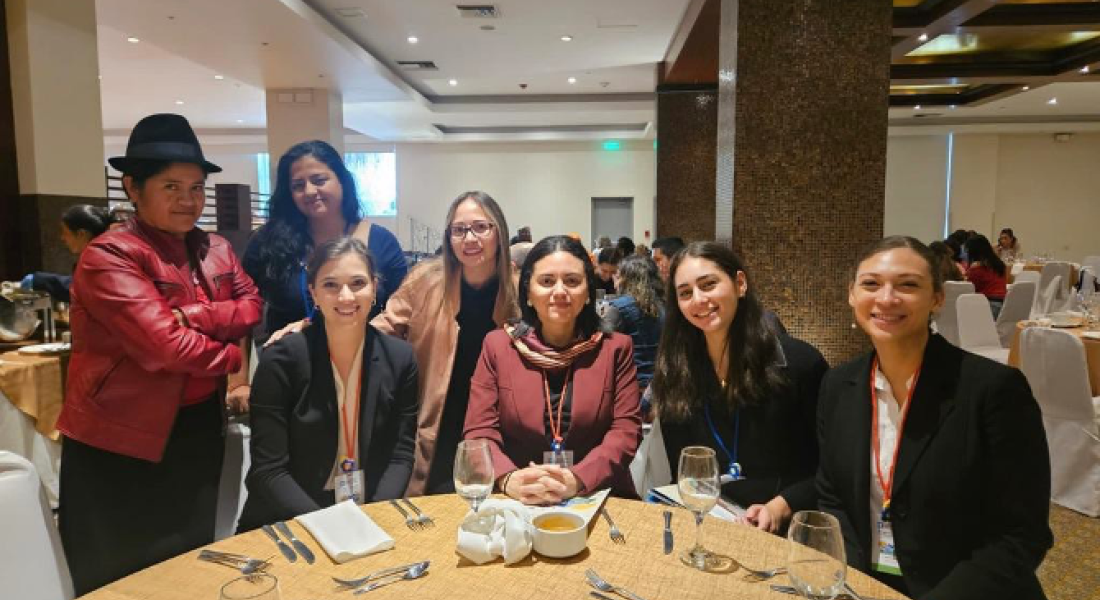
“Without investment, gender equality will take nearly 300 years”
- UN Report, 2022.
Three weeks ago, I traveled to Quito, Ecuador to attend the UN Women Safe Cities and Safe Public Spaces Global Leaders Forum as part of my work with Professor Abby Córdova. The experience allowed me to contextualize my research, ask better questions, and engage with innovative and practical solutions to gender-based violence and public safety issues.
For the past three years I have worked with Professor Abby Córdova under Kellogg’s International Scholars Program to study various projects concerning Violence Against Women (VAW) in Latin America. Most recently, I was able to accompany her while she served as a knowledge expert during the UN Women Safe Cities and Safe Public Spaces Forum. During her panel, Professor Córdova shared insights from her work on transnational organized crime and its links to everyday forms of VAW, discussing the heightened vulnerability women and girls experience while living in areas of territorial control. Moreover, the panel discussed possible solutions to improve women’s safety and security. It covered Professor Córdova’s previous research on the impact of women’s police stations on gender-based violence and incorporated audience-member insights on its implementation around the world. Thus, Professor Córdova’s panel served as just one example of how the conference created a space for presentation, discussion, and network-building among hundreds of experts.
The forum began with a “World Cafe” activity during which local groups presented initiatives to elevate women’s voices and create safe spaces around the city. Some stand-out examples include participatory co-design models that include women in the creation of public spaces, the integration of women in security institutions, and the creation of protection shelters that provide legal and psychological support for victims of gender-based violence. These presentations prompted audience participation and nuanced implementation concerns, inspiring new and improved questions for my own research.
The following days included a mix of large panel discussions and short expert presentations, both of which allowed me to learn from and connect with experts at the forefront of their field. Sessions ranged from tackling the consequences of digitization to “Buzz Sessions” on initiative best practices. Thus, the forum heavily emphasized the need to integrate theory and practice when fighting for public safety. It brought together local government, civil society, and academic leaders to craft holistic solutions. Through it all, the importance of integration emerged as the primary takeaway: we have to integrate end users in program design, integrate multi-sectoral stakeholders in program implementation, and integrate qualitative and quantitative approaches to program monitoring. Most crucially, we have to integrate intersectional approaches to think about who we are fighting for and what we are fighting against. The issue of gender-based violence takes on a wide range of colors and contexts, extending into digital spaces, multi-violence contexts, and communities at the urban-rural divide. All in all, attending the UN Women's Forum on Safe Cities and Safe Public Spaces expanded my understanding of the issue, emphasized the importance of data and monitoring, and reignited my desire to study the best ways to make change.
Following the sentiment expressed by the mayor of Quito, Pabel Muñoz, I hope to continue to fight not for the reduction but for the eradication of all forms of Violence Against Women, because 300 years is too long to wait.





